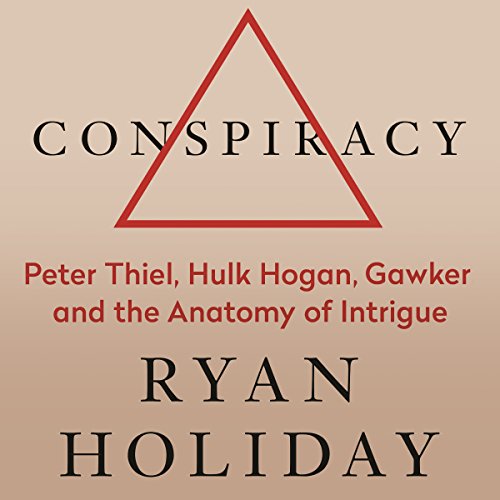
In 2016, one of the giants of modern journalism fell: Gawker Media, infamous for saying what other outlets wouldn’t say, was sued for publishing Hulk Hogan’s sex tape, lost the case and went bust. After countless other lawsuits it seemed that Gawker had finally run out of luck. But luck had nothing to do with it.
Peter Thiel, PayPal founder and billionaire investor, had masterminded the whole thing. Still furious at an article that had outed him 10 years previously, and increasingly disgusted at Gawker’s unscrupulous reporting methods, Thiel had spent nearly a decade meticulously plotting a conspiracy that would lead to the demise of Gawker and its founder, Nick Denton. After a multiyear proxy war through the Florida legal system, the settlement of $140 million in favour of Hogan ended it. The verdict would stun the world, and so would Peter’s ultimate unmasking as the man who had set it all in motion. Why had he done this? How had no one discovered it? What would this mean – for free speech? For privacy? For culture?
In Holiday’s masterful telling of this nearly unbelievable conspiracy, informed by exclusive interviews with all the key players, this case transcends the narrative of how one billionaire took down a media empire or the current state of the free press. It’s a study in power, strategy, and one of the most wildly ambitious – and successful – secret plots in recent memory.

An absolutely transfixing tale told by a master A number of years ago, my entire view of the world was flipped upside down after someone lent me “Trust Me I’m Lying”, written by a young media savvy kid named Ryan Holiday. From that day onward, it became my number one recommendation in every conversation where someone goes off on a lament about something they saw or heard on the ‘news’.I began following everything I could by Holliday, reading his blog, learning about Stoicism… and time and time again, what he wrote…
A Chess Match Between Two Titans And What It Means For You One of my favorite authors, John McPhee, wrote a book about single tennis match called Levels of the Game. A book about a single tennis game does not sound like there can be much to it, but the story of the match is really the story of two men, how they were raised, what lead them to that space and time and playing style, and what that match meant as a pivoting point in race and culture. More than any other book, I was reminded of Levels of the Game while reading Conspiracy.Most…
More than just a great piece of narrative non-fiction I love narrative non-fiction and I definitely love anything about conspiracies, but what I was most surprised by with this book is how much I learned about the nature of conspiracy itself. Usually when you read like a spy thriller or an espionage book or something like that, you get the details of a conspiracy but they never zoom out and tell you why those details work or how they fit into a larger strategy. You get that kind of knowledge in this book which was really cool. And somehow I ended…